Dealing with a drug abuse problem is a messy, uphill battle. But if paired with a mental health disorder, it can multiply the effects and create an even larger problem. The mental health effects of meth, or methamphetamine, is troubling and tricky to deal with.
Meth is an artificial drug that is highly addictive and inherently dangerous. This substance is not regulated, so there is no way of knowing where it came from, what is in it, or what dosage you will receive.
The chronic use of this drug can lead to multiple different effects on your mental health, for example:
- Paranoia
- Depression
- Anxiety
- Aggression
- Hallucinations
Here at the Las Vegas Recovery Center, our staff has direct experience with substance or alcohol abuse and are currently in the long-term recovery process. We can help you take back control of your life and offer you guided support along the way.
How Are Mental Health and Meth Addiction Related?
Many people who use drugs, like methamphetamine, are at a higher risk for developing mood disorders and anxiety disorders.
The specific mental health effects of meth follow that same pattern. Chronic use of meth or crystal meth, as it is more commonly known, can have long-term and short-term changes on the brain, such as:
- Seizures
- Strokes
- Damaging effects on brain cells
- Changes in the functioning of the brain circuits
Drugs, like meth, directly affect the brain’s circuits that are responsible for pain and pleasure, decision-making, and memory. All of these changes to the brain can be devastating and can lead to irreparable damage.
What Is A Dual Diagnosis?
Dual diagnosis is a type of treatment that addresses disorders that occur together. This is prescribed after meeting with a therapist and conducting an in-depth assessment of the client. This includes reviewing medical records, interviewing the client, and conducting a physical assessment of the client.
After this has been compiled, the therapist or medical professional may prescribe the client with a dual diagnosis treatment for their condition. Dual diagnosis treatments are also viable options for people in a pain recovery program because most people turn to meth or other drugs to cope with chronic or severe pain relief.
Treatment Options Available For The Mental Health Effects of Meth
The Las Vegas Recovery Center is dedicated to providing high-quality care and assisting individuals along the road to recovery. We offer comprehensive treatment programs that target your specific needs to help improve your overall quality of life.
By offering many different treatment options, we are available to provide you with an all-encompassing recovery program. We offer therapeutic approaches such as trauma therapy, family therapy, and cognitive-behavioral therapy. Las Vegas Recovery Center also offers dual diagnosis treatment options if you qualify.
The staff at the Las Vegas Recovery Center can help get you the best support you need. Some of our other treatment programs include:
- Detox program
- Residential treatment
- Partial hospitalization program
- Intensive outpatient program
- TRIBE program
We are here to support you during the recovery process, and no one deserves to fight the battle of addiction and mental health alone. Our experts can make sure you are receiving the highest quality care that is catered to you and your recovery journey.
Get Help For Mental Health And Meth Addiction At The Las Vegas Recovery Center
If you or a loved one struggles with the mental health effects of meth, reach out to us today. Our treatment center and staff are here to help you take back control over your life and provide dual diagnosis treatment options for your optimal recovery. Call the Las Vegas Recovery Center at 844.332.2076, and we can discuss the treatment options available that work best for you.

